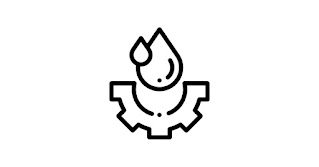1. Pascal-second is the unit of
a) pressure
b) kinematic viscosity
c) dynamic viscosity
d) surface tension
Ans: c
2. An ideal fluid is
a) one which obeys Newton’s law of viscosity
b) frictionless and incompressible
c) very viscous
d) frictionless and compressible
Ans: b
3. The unit of kinematic viscosity is
a) gm/cm-sec2
b) dyne-sec/cm2
c) gm/cm2-sec
d) cm2/sec
Ans: d
4. If the dynamic viscosity of a fluid is 0.5 poise and specific gravity is 0.5, then the kinematic viscosity of that fluid in stokes is
a) 0.25
b) 0.50
c) 1.0
d) none of the above
Ans: c
5. The viscosity of a gas
a) decreases with increase in temperature
b) increases with increase in temperature
c) is independent of temperature
d) is independent of pressure for very high pressure intensities
Ans: b
6. Newton’s law of viscosity relates
a) intensity of pressure and rate of angular deformation
b) shear stress and rate of angular deformation
c) shear stress, viscosity and temperature
d) viscosity and rate of angular deformation
Ans: b
7. An open tank contains 1 m deep water with 50 cm depth of oil of specific gravity 0.8 above it. The intensity of pressure at the bottom of tank will be
a) 4 kN/m2
b) 10 kN/m2
c) 12 kN/m2
d) 14 kN/m2
Ans: d
8. The position of center of pressure on a plane surface immersed vertically in a static mass of fluid is
a) at the centroid of the submerged area
b) always above the centroid of the area
c) always below the centroid of the area
d) none of the above
Ans: c
9. The total pressure on a plane surface inclined at an angle 9 with the horizontal is equal to
a) PA
b) pA sin 9
c) pA cos 9
d) pA tan 9
where p is pressure intensity at centroid of area and A is area of plane surface.
Ans: a
10. A vertical rectangular plane surface is submerged in water such that its top and bottom surfaces are 1.5 m and 6.0 m respectively below the free surface. The position of center of pressure below the free surface will be at a distance of
a) 3.75 m
b) 4.0 m
c) 4.2m
d) 4.5m
Ans: c

